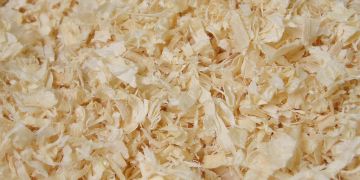Psyllium capsules are an easy way to take care of this problem. It fills you with fibre, reducing appetite without over stimulating the nervous system; a much healthier approach than formulas containing ephedra.
Aids digestive system
Psyllium seed husks, also known as ispaghula, isabgol, or psyllium, are portions of the seeds of the plant Plantago ovata, (genus Plantago), a native of India and Pakistan. Psyllium is used in weight control and for general intestinal health. It contains a spongy fiber that reduces appetite, improves digestion and cleanses the system, making it an excellent choice for healthy dieting. Psyllium can provide the fiber that is missing on low carbohydrate diets. Every 100 grams of psyllium provides 71 grams of soluble fiber; a similar amount of oat bran would contain only 5 grams of soluble fiber. Only recently have scientists learned that soluble fiber has unique effects on metabolism. Just take one or two capsules with a glass of water or Yerba Mate diet tea, half hour before meals. The herb also provides a feeling of fullness that is helpful before meals. Psyllium is one of the simplest, healthiest and most effective herbs for weight control.
Studies and clinical reports suggest that psyllium may enhance the sensation of fullness and reduce hunger cravings. For these reasons, incorporating psyllium and other sources of fiber into the diet may aid weight loss.
For those simply wishing to improve digestion and intestinal tract health, a single capsule per day is all that is needed.
Irritable Bowel Syndrome and other bowel disorders
Psyllium has also been used for irritable bowel syndrome (a stress-related disorder with alternating bouts of diarrhea and constipation). Because it will produce easy bowel movements with a loose stool, Psyllium is used by patients with anal fissures (cracks in the skin near the anus) and hemorrhoids and is often recommended following anal or rectal surgery, during pregnancy and as a secondary treatment in certain types of diarrhea.
Psyllium soaks up a significant amount of water in the digestive tract, thereby making stool firmer and, under these circumstances, slower to pass. Psyllium also has the additional advantages over other sources of fiber of reducing flatulence and bloating. It may be recommended by a physician to help soften stool and reduce the pain associated with hemorrhoids.
In a study of people with ulcerative colitis (a type of inflammatory bowel disorder), psyllium seeds were as shown to be as effective as the prescription drug mesalamine in decreasing recurrences of the disease. In addition, a physician may recommend the use of psyllium as a bulking agent for mild to moderate cases of diarrhea from either ulcerative colitis or Crohn's disease (another type of inflammatory bowel disorder).
Lowers cholesterol
Research reported in The American Journal of Clinical Nutrition concludes that the use of soluble-fiber cereals is an effective and well-tolerated part of a prudent diet for the treatment of mild to moderate Hypercholesterolaemia. Soluble fibers such as those in psyllium husk, guar gum, and oat bran have a cholesterol-lowering effect when added to a low-fat, low-cholesterol diet. Studies reported in The American Journal of Clinical Nutrition have shown psyllium to be quite effective in lowering total as well as LDL ("bad") cholesterol levels, which can be helpful to those with high cholesterol and those at increased risk for developing hypercholesterolemia, such as people with type 2 diabetes.





